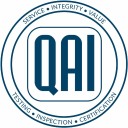EN ISO 11600:2003
(Main)Building construction - Jointing products - Classification and requirements for sealants (ISO 11600:2002)
Building construction - Jointing products - Classification and requirements for sealants (ISO 11600:2002)
This International Standard specifies the types and classes of sealants used in building construction according to their applications and performance characteristics.
The requirements and respective test methods for the different classes are also given.
Hochbau - Fugendichtstoffe - Einteilung und Anforderungen von Dichtungsmassen (ISO 11600:2002)
Construction immobilière - Produits pour joints - Classification et exigences pour les mastics (ISO 11600:2002)
La présente Norme internationale spécifie les types et classes de mastics utilisés pour la construction immobilière suivant leurs applications et leurs caractéristiques de performances.
Les exigences et les méthodes d'essai relatives aux différentes classes sont également données.
Gradnja objektov - Sredstva za stikovanje - Klasifikacija in zahteve za tesnilne mase (ISO 11600:2002)
Mednarodni standard določa tip in razred tesnilnih mas za gradnjo objektov glede na njihove uporabne in delovne značilnosti. Standard predpisuje tudi zahteve in preskusne metode za različne razrede.
General Information
- Status
- Published
- Publication Date
- 25-Nov-2003
- Withdrawal Date
- 30-May-2004
- Technical Committee
- CEN/SS B02 - Structures
- Drafting Committee
- CEN/SS B02 - Structures
- Current Stage
- 9093 - Decision to confirm - Review Enquiry
- Start Date
- 06-Mar-2008
- Completion Date
- 06-Mar-2008
Relations
- Effective Date
- 09-Feb-2026
- Effective Date
- 09-Feb-2026
- Refers
ISO 11432:1993 - Building construction — Sealants — Determination of resistance to compression - Effective Date
- 09-Feb-2026
- Refers
EN ISO 13903:2005 - Animal feeding stuffs - Determination of amino acids content (ISO 13903:2005) - Effective Date
- 28-Jan-2026
- Effective Date
- 28-Jan-2026
- Effective Date
- 28-Jan-2026
- Effective Date
- 28-Jan-2026
- Effective Date
- 28-Jan-2026
- Effective Date
- 28-Jan-2026
- Effective Date
- 28-Jan-2026
- Effective Date
- 28-Jan-2026
- Effective Date
- 28-Jan-2026
- Effective Date
- 28-Jan-2026
- Effective Date
- 28-Jan-2026
- Effective Date
- 28-Jan-2026
Overview
EN ISO 11600:2003 is an essential international standard addressing the classification and requirements for sealants used in building construction. Developed and maintained by the European Committee for Standardization (CEN) based on ISO 11600:2002, this standard provides a comprehensive framework for specifying jointing products - specifically sealants - based on their intended application, performance characteristics, and test methods. It serves as a pivotal guideline helping manufacturers, specifiers, and quality controllers ensure the durability, reliability, and safety of sealant materials in construction projects.
The standard covers sealants used primarily for glazing joints (Type G) and other building joints (Type F). It outlines classification by movement capability, elastic properties, and tensile properties, alongside detailed testing methods to verify compliance with stringent performance criteria.
Key Topics
Sealant Types
- Type G (Glazing Sealants): Designed for glazing joints involving glass and metal.
- Type F (Construction Sealants): Intended for non-glazing building joints, including concrete, masonry, and other substrates.
Classification of Sealants
Sealants are classified based on their ability to accommodate joint movement:- Movement capability classes: 25, 20, 12.5, and 7.5 (% movement)
- Elasticity subclasses: Low modulus (LM) and high modulus (HM) based on secant tensile modulus for classes 25 and 20; Elastic (E) and Plastic (P) for class 12.5 and 7.5 (for Type F only).
Performance Requirements
The standard specifies key performance characteristics and respective test methods, such as:- Elastic recovery (ISO 7389)
- Tensile properties including secant tensile modulus, elongation, and tensile strength (ISO 8339, ISO 8340)
- Resistance to flow and compression (ISO 7390, ISO 11432)
- Adhesion and cohesion properties at variable and constant temperatures (ISO 9046, ISO 9047)
- Aging effects like exposure to heat, water immersion, and artificial light (ISO 11431, ISO 10590, ISO 10591)
- Volume change limits and durability under environmental conditions
Testing Conditions and Methodology
EN ISO 11600 mandates standardized conditioning and test procedures with specified substrates, including glass, anodized aluminum, and mortar, in accordance with ISO 13640. Conditioning simulates real-life curing for reliable and repeatable test results.
Applications
EN ISO 11600:2003 is widely applied in the building and construction industry for:
- Architectural and structural glazing: Selection of sealants ensuring longevity and performance in glass curtain walls, windows, and doors.
- General building joints: Movement accommodation in expansion joints, panel joints, and utility penetrations within buildings and civil structures.
- Sealant product development: Assisting manufacturers to design sealants that comply with recognized performance benchmarks, guaranteeing product quality and installation reliability.
- Quality control and inspection: Guiding testing laboratories and quality assurance professionals in verifying sealant materials against internationally recognized criteria.
- Regulatory compliance and specification writing: Providing reference for compliance with national and international building codes and standards related to joint sealing.
The standard’s clear classification and detailed performance requirements enable informed decision-making regarding the appropriate sealant type and class needed for specific construction environments and functional demands.
Related Standards
EN ISO 11600 references and relates to numerous other ISO standards critical for a comprehensive understanding and assessment of sealants:
- ISO 6927 - Vocabulary for sealants and jointing products
- ISO 7389 - Determination of elastic recovery
- ISO 7390 - Resistance to flow testing
- ISO 8339 / ISO 8340 - Tensile properties measurements
- ISO 9046 / ISO 9047 - Adhesion/cohesion testing under variable and constant temperatures
- ISO 10563 / ISO 10590 / ISO 10591 - Tests for mass, volume change, and adhesion/cohesion after water immersion
- ISO 11431 / ISO 11432 - Testing for heat, water, artificial light exposure and resistance to compression
- ISO 13640 - Specifications for test substrates
- EN ISO 26927, EN ISO 10563 - Complementary European standards harmonizing test methods and definitions
These interconnected standards facilitate a holistic approach to jointing product evaluation in the building sector, ensuring sealants meet functional, mechanical, and environmental durability criteria.
Keywords: EN ISO 11600, sealants classification, jointing products, building construction sealants, glazing sealants, construction sealants, sealant requirements, movement capability, elastic recovery, tensile properties, adhesion tests, ISO sealant standards.
Get Certified
Connect with accredited certification bodies for this standard

ICC Evaluation Service
Building products evaluation and certification.

QAI Laboratories
Building and construction product testing and certification.

Aboma Certification B.V.
Specialized in construction, metal, and transport sectors.
Sponsored listings
Frequently Asked Questions
EN ISO 11600:2003 is a standard published by the European Committee for Standardization (CEN). Its full title is "Building construction - Jointing products - Classification and requirements for sealants (ISO 11600:2002)". This standard covers: This International Standard specifies the types and classes of sealants used in building construction according to their applications and performance characteristics. The requirements and respective test methods for the different classes are also given.
This International Standard specifies the types and classes of sealants used in building construction according to their applications and performance characteristics. The requirements and respective test methods for the different classes are also given.
EN ISO 11600:2003 is classified under the following ICS (International Classification for Standards) categories: 91.100.50 - Binders. Sealing materials. The ICS classification helps identify the subject area and facilitates finding related standards.
EN ISO 11600:2003 has the following relationships with other standards: It is inter standard links to ISO 6927:1981, ISO 10563:1991, ISO 11432:1993, EN ISO 13903:2005, EN ISO 6869:2000, EN ISO 21007-2:2013, CEN/TR 15172-2:2005, EN ISO 15463:2003/AC:2009, EN 13119:2007, EN ISO 14825:2011, EN 23927:1993, EN 2240-050:2010, EN 15651-4:2012, EN 15651-3:2012, EN 15651-2:2012. Understanding these relationships helps ensure you are using the most current and applicable version of the standard.
EN ISO 11600:2003 is available in PDF format for immediate download after purchase. The document can be added to your cart and obtained through the secure checkout process. Digital delivery ensures instant access to the complete standard document.
Standards Content (Sample)
SLOVENSKI STANDARD
01-april-2004
Gradnja objektov - Sredstva za stikovanje - Klasifikacija in zahteve za tesnilne
mase (ISO 11600:2002)
Building construction - Jointing products - Classification and requirements for sealants
(ISO 11600:2002)
Hochbau - Fugendichtstoffe - Einteilung und Anforderungen von Dichtungsmassen (ISO
11600:2002)
Construction immobiliere - Produits pour joints - Classification et exigences pour les
mastics (ISO 11600:2002)
Ta slovenski standard je istoveten z: EN ISO 11600:2003
ICS:
91.100.50 Veziva. Tesnilni materiali Binders. Sealing materials
2003-01.Slovenski inštitut za standardizacijo. Razmnoževanje celote ali delov tega standarda ni dovoljeno.
EUROPEAN STANDARD
EN ISO 11600
NORME EUROPÉENNE
EUROPÄISCHE NORM
November 2003
ICS 91.100.50
English version
Building construction - Jointing products - Classification and
requirements for sealants (ISO 11600:2002)
Construction immobilière - Produits pour joints - Hochbau - Fugendichtstoffe - Einteilung und Anforderungen
Classification et exigences pour les mastics (ISO von Dichtungsmassen (ISO 11600:2002)
11600:2002)
This European Standard was approved by CEN on 25 September 2003.
CEN members are bound to comply with the CEN/CENELEC Internal Regulations which stipulate the conditions for giving this European
Standard the status of a national standard without any alteration. Up-to-date lists and bibliographical references concerning such national
standards may be obtained on application to the Management Centre or to any CEN member.
This European Standard exists in three official versions (English, French, German). A version in any other language made by translation
under the responsibility of a CEN member into its own language and notified to the Management Centre has the same status as the official
versions.
CEN members are the national standards bodies of Austria, Belgium, Czech Republic, Denmark, Finland, France, Germany, Greece,
Hungary, Iceland, Ireland, Italy, Luxembourg, Malta, Netherlands, Norway, Portugal, Slovakia, Spain, Sweden, Switzerland and United
Kingdom.
EUROPEAN COMMITTEE FOR STANDARDIZATION
COMITÉ EUROPÉEN DE NORMALISATION
EUROPÄISCHES KOMITEE FÜR NORMUNG
Management Centre: rue de Stassart, 36 B-1050 Brussels
© 2003 CEN All rights of exploitation in any form and by any means reserved Ref. No. EN ISO 11600:2003 E
worldwide for CEN national Members.
Foreword
The text of ISO 11600:2002 has been prepared by Technical Committee ISO/TC 59 "Building
construction” of the International Organization for Standardization (ISO) and has been taken
over as EN ISO 11600:2003 by CMC.
This European Standard shall be given the status of a national standard, either by publication of
an identical text or by endorsement, at the latest by May 2004, and conflicting national standards
shall be withdrawn at the latest by May 2004.
According to the CEN/CENELEC Internal Regulations, the national standards organizations of
the following countries are bound to implement this European Standard: Austria, Belgium, Czech
Republic, Denmark, Finland, France, Germany, Greece, Hungary, Iceland, Ireland, Italy,
Luxembourg, Malta, Netherlands, Norway, Portugal, Slovakia, Spain, Sweden, Switzerland and
the United Kingdom.
Endorsement notice
The text of ISO 11600:2002 has been approved by CEN as EN ISO 11600:2003 without any
modifications.
NOTE Normative references to International Standards are listed in Annex ZA (normative).
Annex ZA
(normative)
Normative references to international publications
with their relevant European publications
This European Standard incorporates by dated or undated reference, provisions from other
publications. These normative references are cited at the appropriate places in the text and the
publications are listed hereafter. For dated references, subsequent amendments to or revisions of
any of these publications apply to this European Standard only when incorporated in it by
amendment or revision. For undated references the latest edition of the publication referred to
applies (including amendments).
NOTE Where an International Publication has been modified by common modifications, indicated
by (mod.), the relevant EN/HD applies.
Publication Year Title EN Year
ISO 6927 1981 Building construction - Jointing EN ISO 26927 1990
products - Sealants – Vocabulary
ISO 7389 1987 Building construction - Jointing EN 27389 1990
products – Determination of elastic
recovery
ISO 7390 1987 Building construction - Jointing EN 27390 1990
products - Determination of
resistance to flow
ISO 8339 1984 Building construction - Jointing EN 28339 1990
products - Sealants -
Determination of tensile properties
ISO 8340 1984 Building construction - Jointing EN 28340 1990
products - Sealants -
Determination of tensile properties
at maintained extension
ISO 9046 1987 Building construction - Jointing EN 29046 1990
products - Determination of
adhesion/cohesion properties at
constant temperatures
ISO 9047 1989 Building construction - Sealants - EN ISO 9047 1997
Determination of adhesion/cohesion
properties at variable temperatures
ISO 10563 1991 Building construction - Sealants for EN ISO 10563 1997
joints - Determination of change in
mass and volume
ISO 10590 1991 Building construction - Sealants - EN ISO 10590 1997
Determination of adhesion/cohesion
properties at maintained extension
after immersion in water
ISO 11431 2002 Building construction - Jointing EN ISO 11431 2002
products - Determination of
adhesion/cohesion properties of
sealants after exposure to heat,
water and artificial light through glass
ISO 11432 1993 Building construction - Sealants - EN ISO 11432 1997
Determination of resistance to
compression
INTERNATIONAL ISO
STANDARD 11600
Second edition
2002-10-01
Corrected version
2004-09-01
Building construction — Jointing
products — Classification and requirements
for sealants
Construction immobilière — Produits pour joints — Classification et
exigences pour les mastics
Reference number
ISO 11600:2002(E)
ISO 11600:2002(E)
PDF disclaimer
This PDF file may contain embedded typefaces. In accordance with Adobe's licensing policy, this file may be printed or viewed but shall not be
edited unless the typefaces which are embedded are licensed to and installed on the computer performing the editing. In downloading this file,
parties accept therein the responsibility of not infringing Adobe's licensing policy. The ISO Central Secretariat accepts no liability in this area.
Adobe is a trademark of Adobe Systems Incorporated.
Details of the software products used to create this PDF file can be found in the General Info relative to the file; the PDF-creation parameters
were optimized for printing. Every care has been taken to ensure that the file is suitable for use by ISO member bodies. In the unlikely event
that a problem relating to it is found, please inform the Central Secretariat at the address given below.
All rights reserved. Unless otherwise specified, no part of this publication may be reproduced or utilized in any form or by any means,
electronic or mechanical, including photocopying and microfilm, without permission in writing from either ISO at the address below or ISO's
member body in the country of the requester.
ISO copyright office
Case postale 56 CH-1211 Geneva 20
Tel. + 41 22 749 01 11
Fax + 41 22 749 09 47
E-mail copyright@iso.ch
Web www.iso.ch
Printed in Switzerland
©
ii ISO 2002 – All rights reserved
ISO 11600:2002(E)
Foreword
ISO (the International Organization for Standardization) is a worldwide federation of national standards bodies (ISO
member bodies). The work of preparing International Standards is normally carried out through ISO technical
committees. Each member body interested in a subject for which a technical committee has been established has
the right to be represented on that committee. International organizations, governmental and non-governmental, in
liaison with ISO, also take part in the work. ISO collaborates closely with the International Electrotechnical
Commission (IEC) on all matters of electrotechnical standardization.
International Standards are drafted in accordance with the rules given in the ISO/IEC Directives, Part 3.
Draft International Standards adopted by the technical committees are circulated to the member bodies for voting.
Publication as an International Standard requires approval by at least 75 % of the member bodies casting a vote.
Attention is drawn to the possibility that some of the elements of this International Standard may be the subject of
patent rights. ISO shall not be held responsible for identifying any or all such patent rights.
International Standard ISO11600 was prepared by Technical Committee ISO/TC59, Building construction,
Subcommittee SC 8, Jointing products.
This second edition cancels and replaces the first edition (ISO 11600:1993), clauses 7 and 8 of which have been
technically revised.
This corrected version of ISO 11600:2002 incorporates the following corrections:
◦ 2
— in Table 2, the tensile properties, secant tensile modulus at + 23 C, have been changed from “”> 4 N/mm to
“”> 0,4 N/mm for classes 25HM and 20HM;
— in Clause 9, item b), “test number” has been changed to “test report number”.
©
ISO 2002 – All rights reserved iii
INTERNATIONAL STANDARD ISO 11600:2002(E)
Building construction — Jointing products — Classification and
requirements for sealants
1 Scope
This International Standard specifies the types and classes of sealants used in building construction according to
their applications and performance characteristics.
The requirements and respective test methods for the different classes are also given.
2 Normative references
The following normative documents contain provisions which, through reference in this text, constitute provisions of
this International Standard. For dated references, subsequent amendments to, or revisions of, any of these
publications do not apply. However, parties to agreements based on this International Standard are encouraged to
investigate the possibility of applying the most recent editions of the normative documents indicated below. For
undated references, the latest edition of the normative document referred to applies. Members of ISO and IEC
maintain registers of currently valid International Standards.
ISO 6927, Building construction — Jointing products — Sealants — Vocabulary
ISO 7389, Building construction — Jointing products — Determination of elastic recovery of sealants
ISO 7390, Building construction — Jointing products — Determination of resistance to flow of sealants
ISO 8339, Building construction — Sealants — Determination of tensile properties (Extension to break)
ISO 8340, Building construction — Sealants — Determination of tensile properties at maintained extension
ISO 9046, Building construction — Jointing products — Determination of adhesion/cohesion properties of sealants
at constant temperature
ISO 9047, Building construction — Jointing products — Determination of adhesion/cohesion properties of sealants
at variable temperatures
ISO 10563, Building construction — Jointing products — Determination of change in mass and volume of sealants
ISO 10590, Building construction — Jointing products — Determination of tensile properties of sealants at
maintained extension after immersion in water
ISO 10591, Building construction — Jointing products — Determination of adhesion/cohesion pro
...




Questions, Comments and Discussion
Ask us and Technical Secretary will try to provide an answer. You can facilitate discussion about the standard in here.
Loading comments...